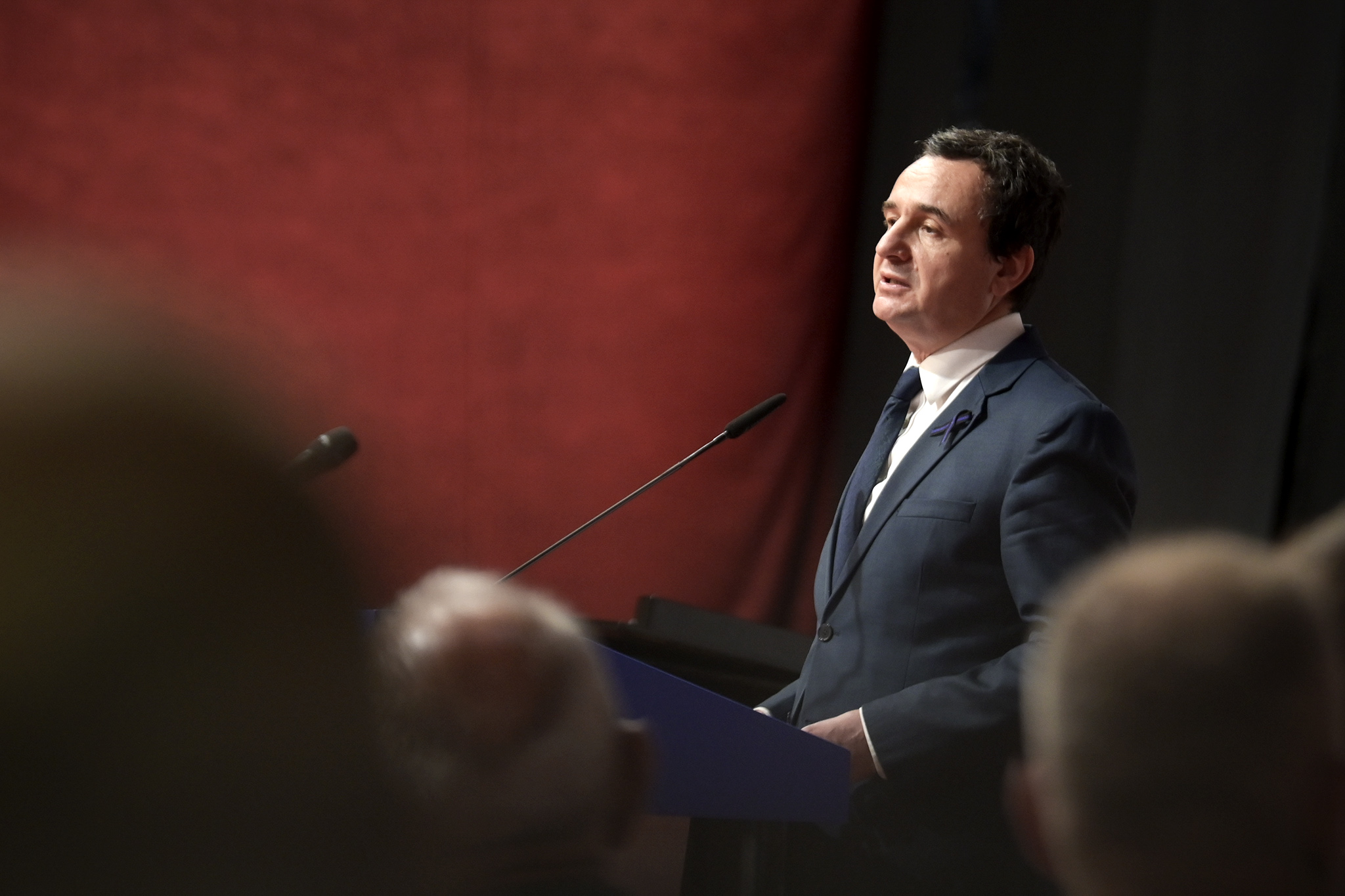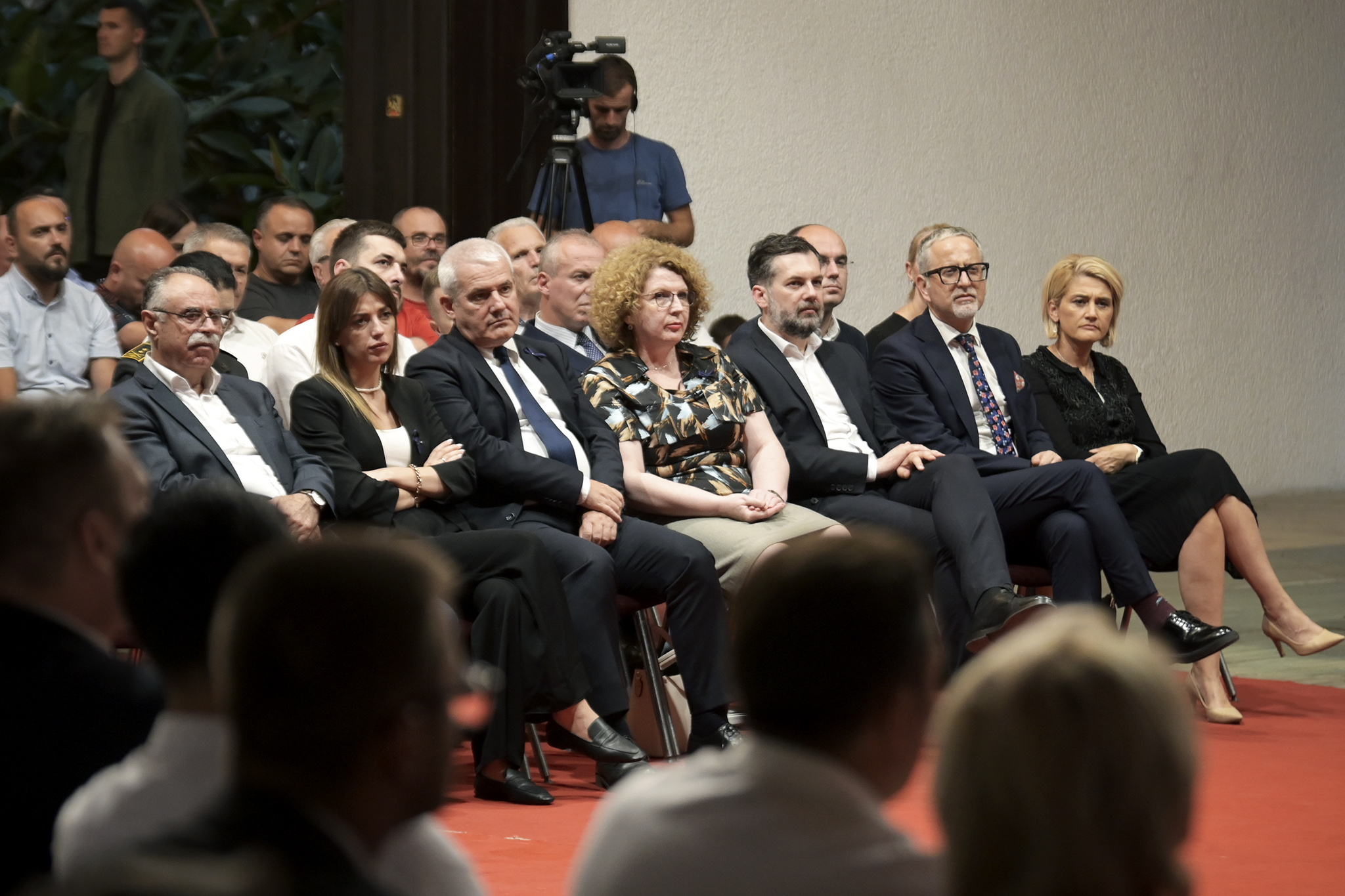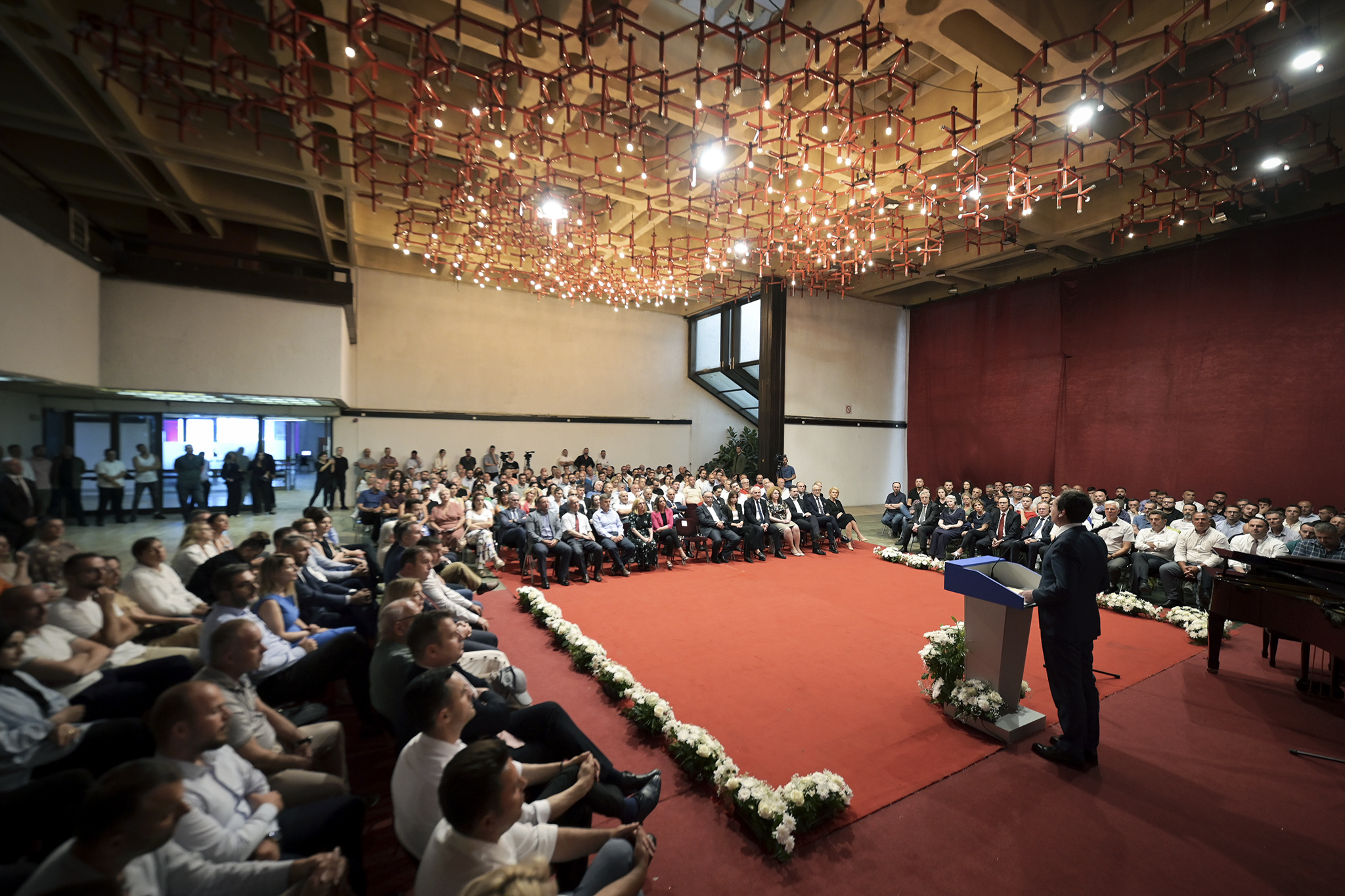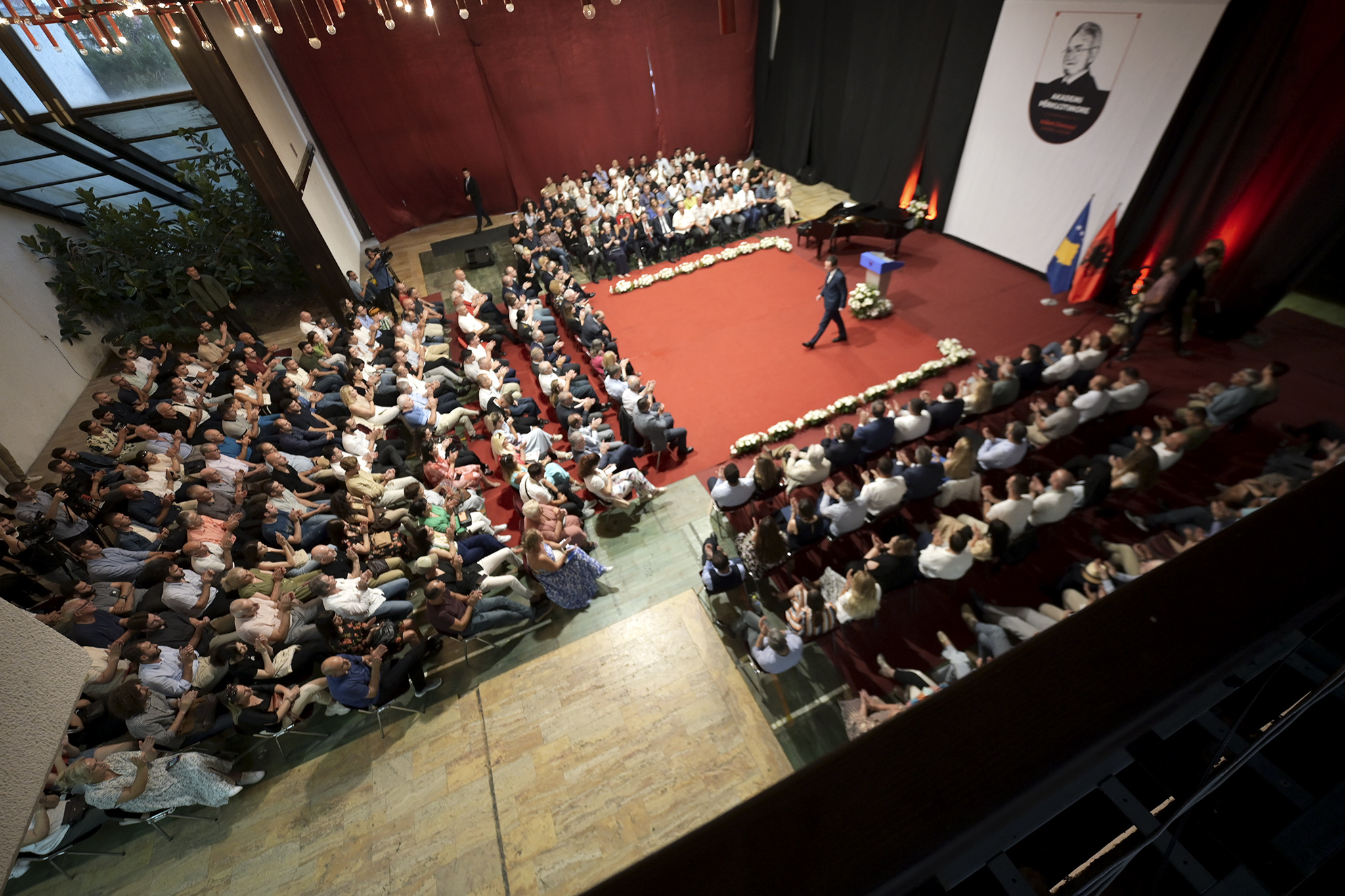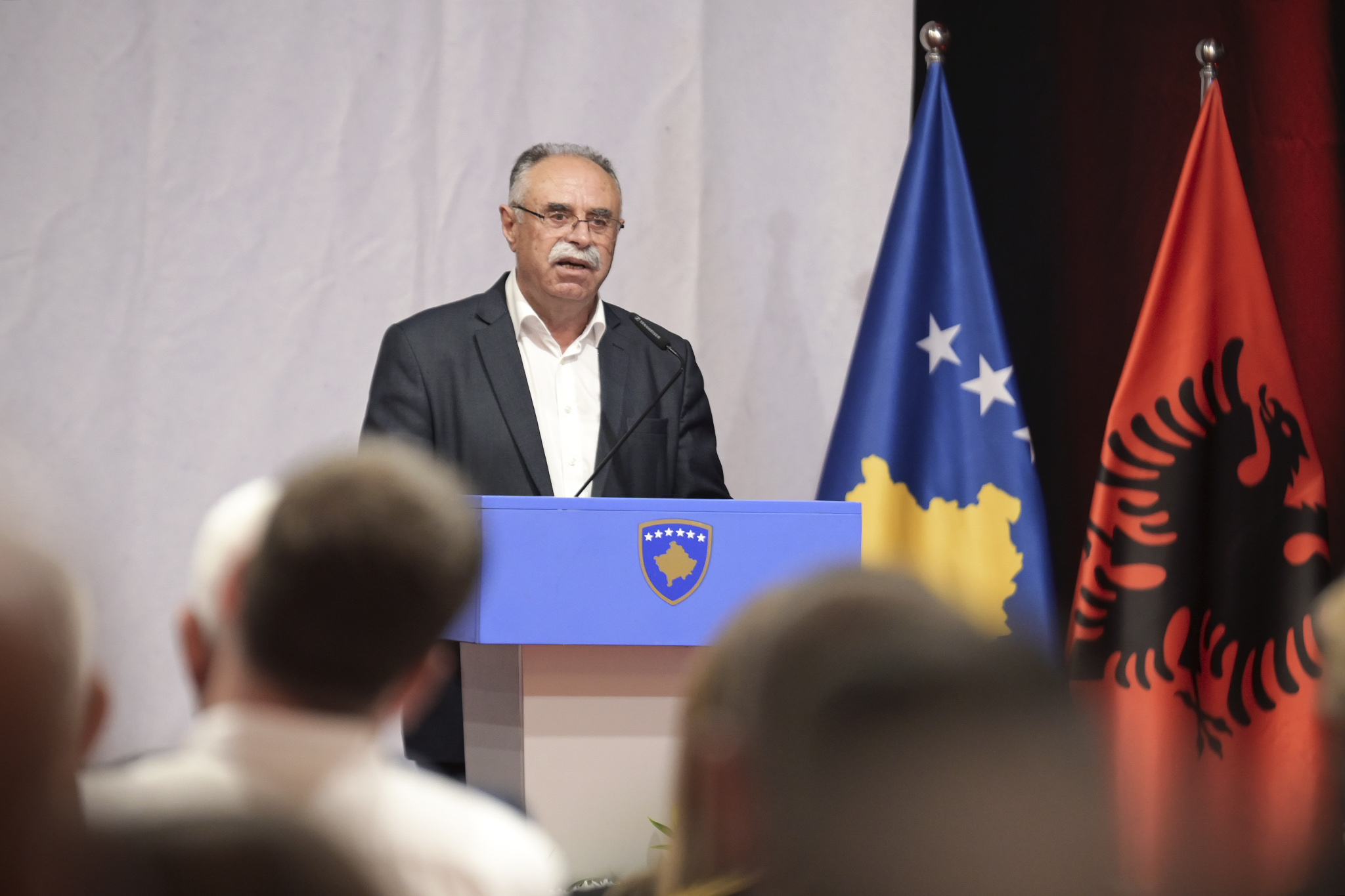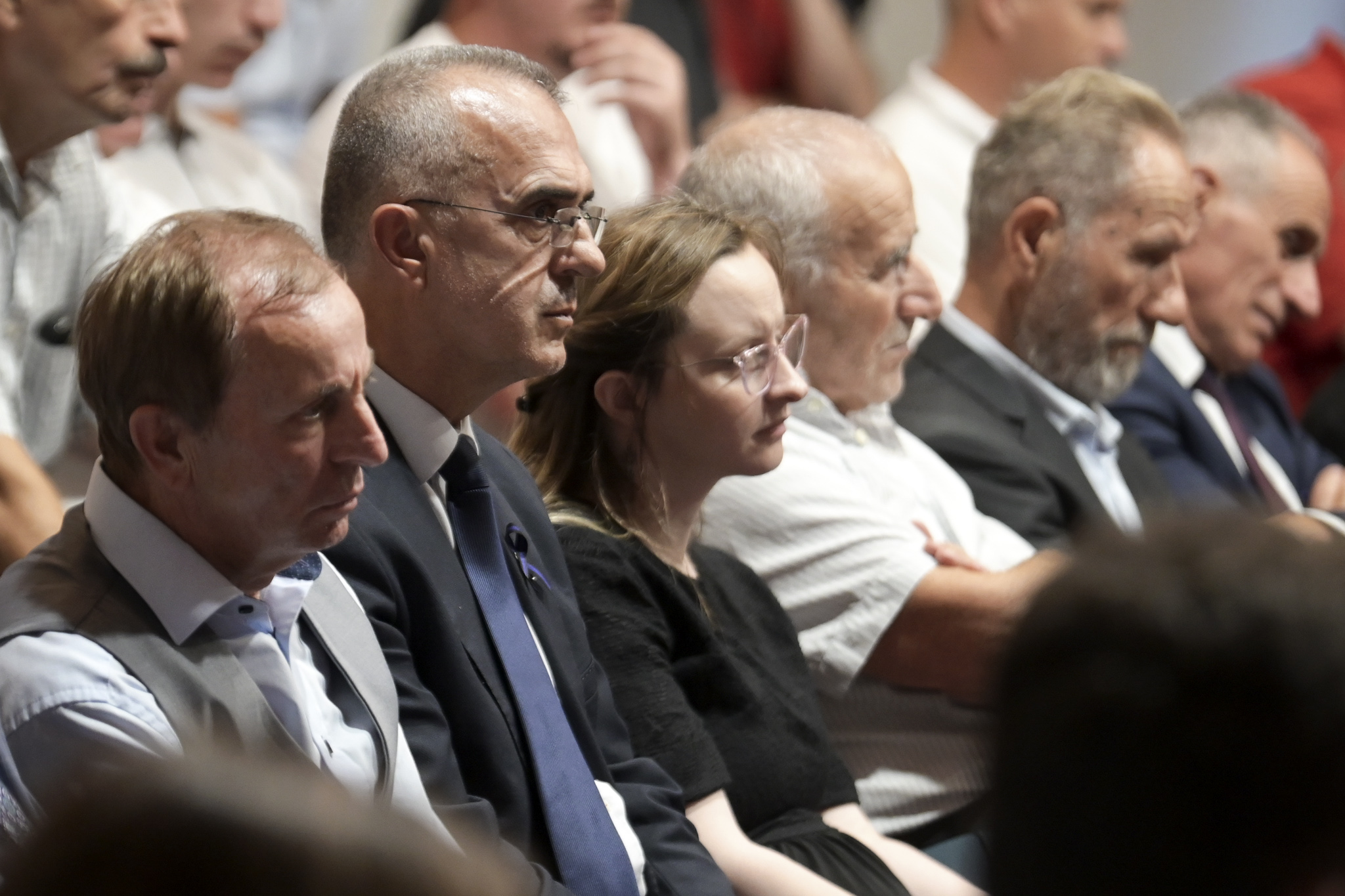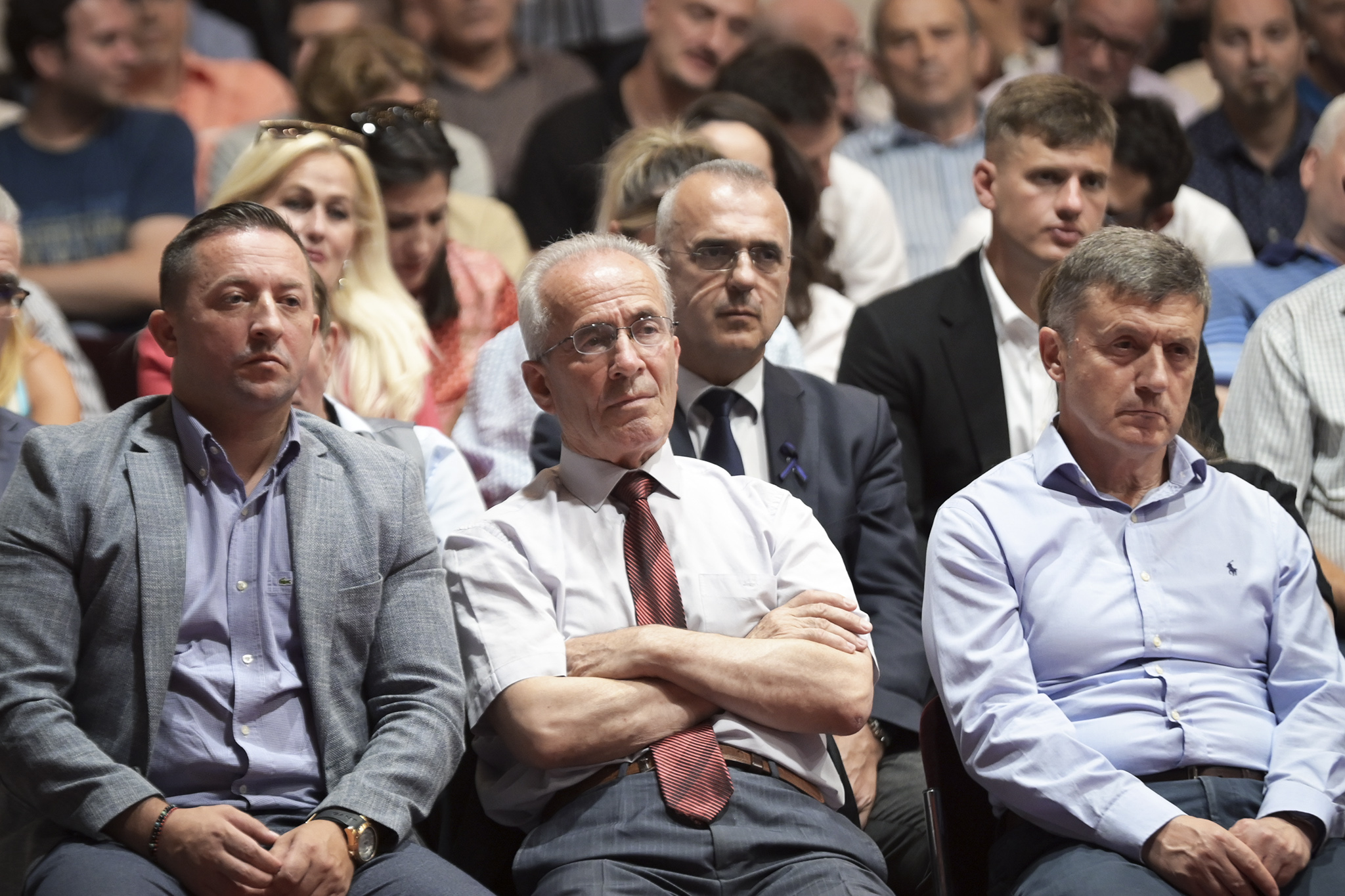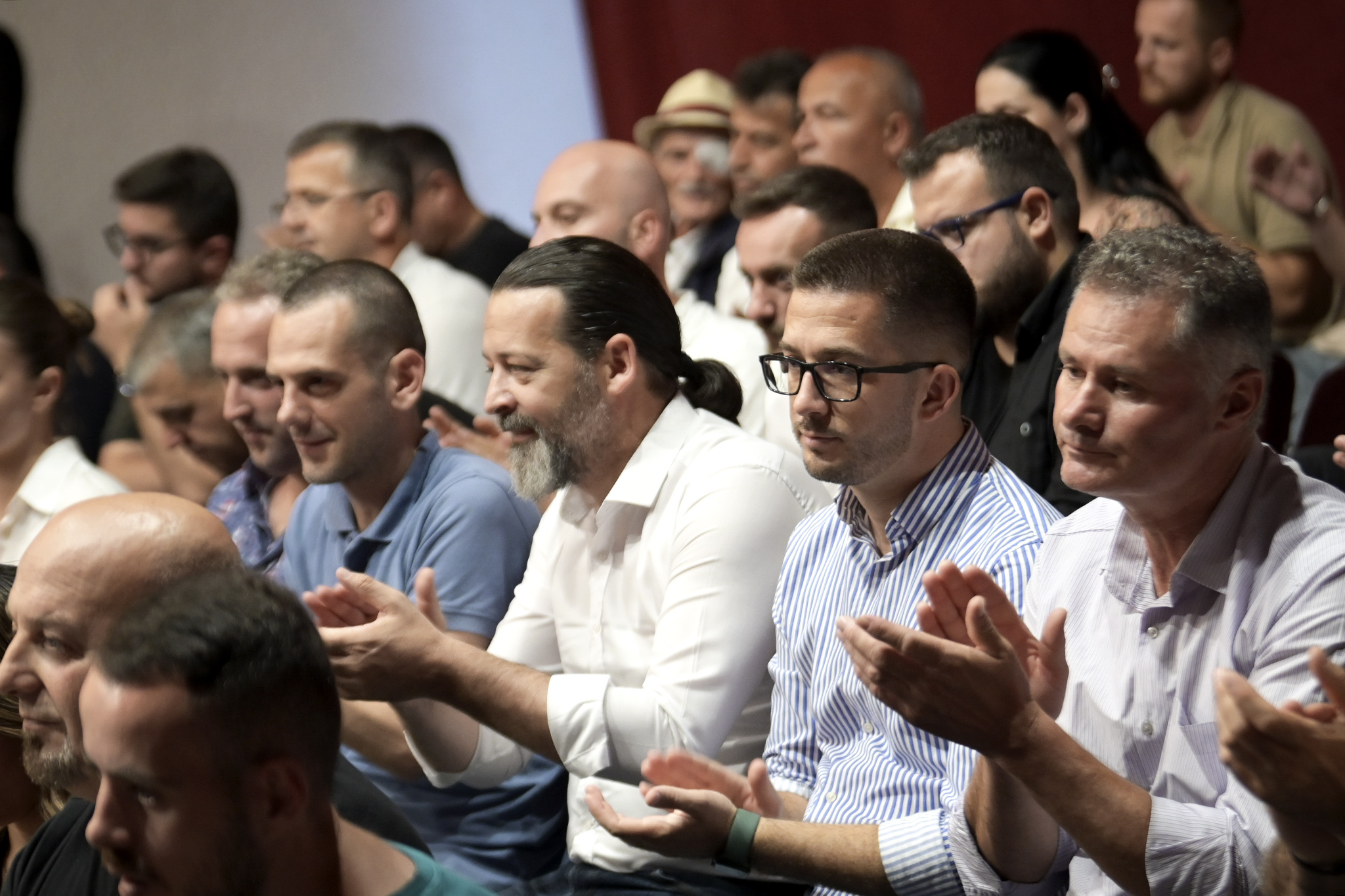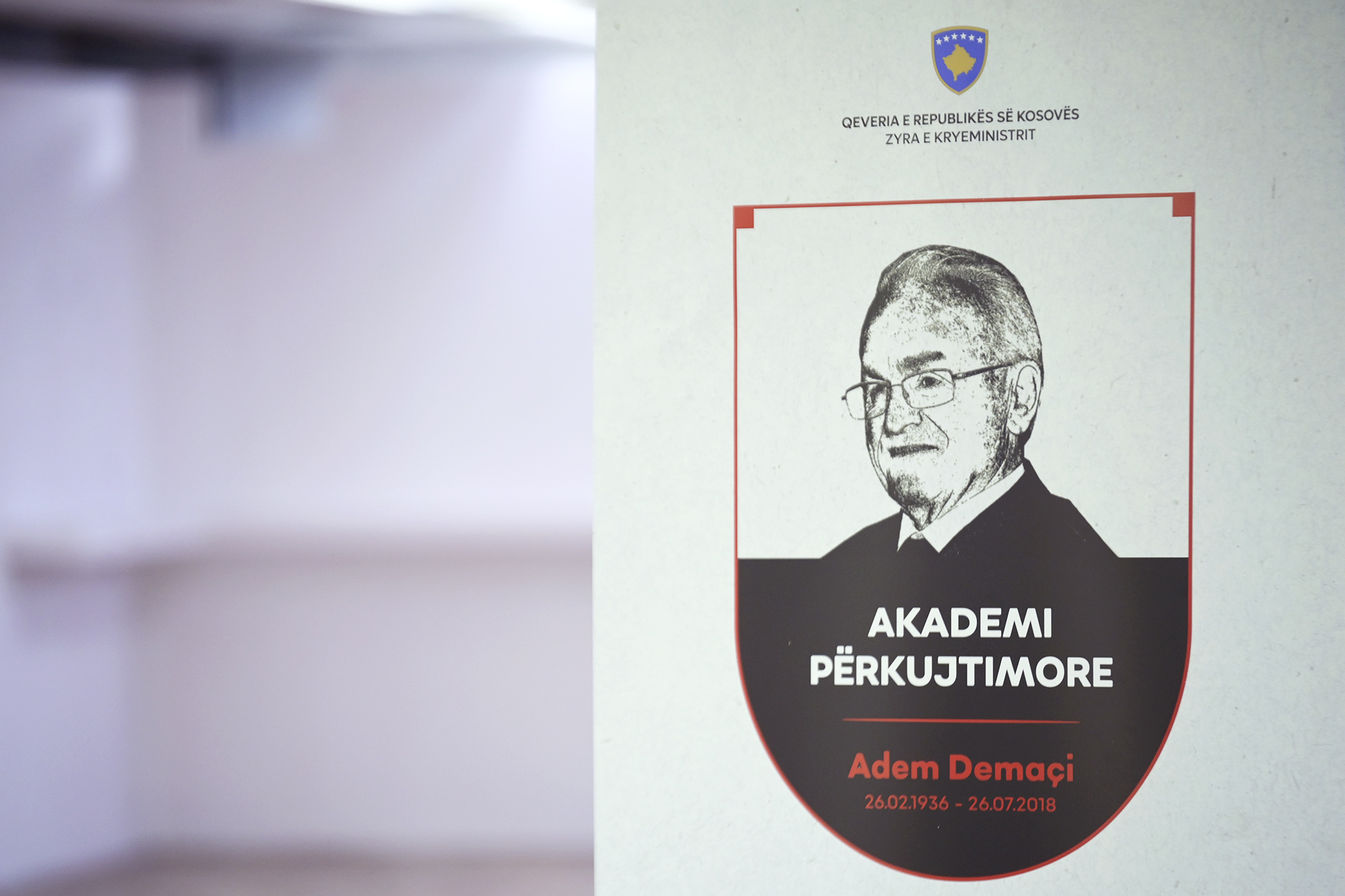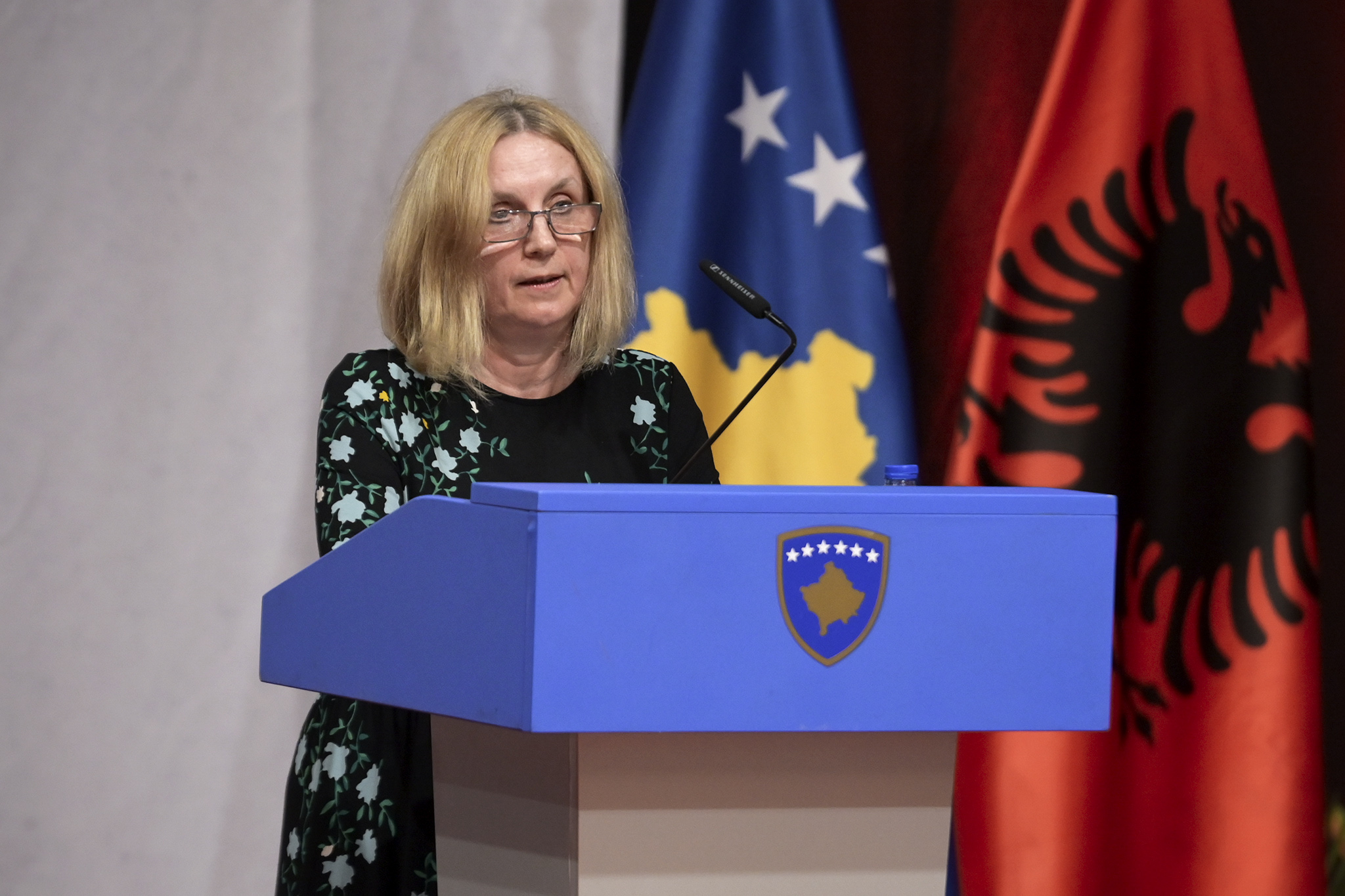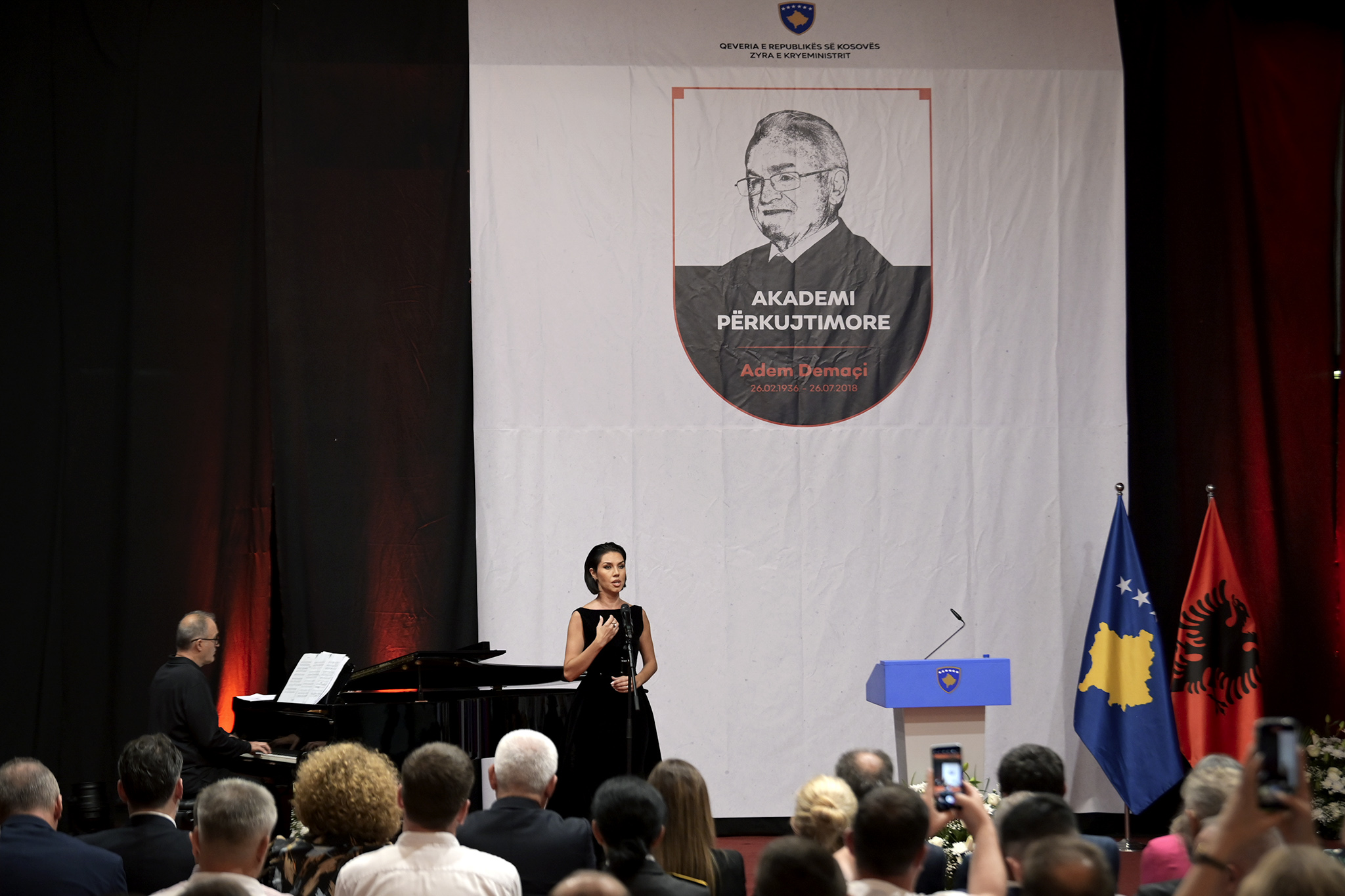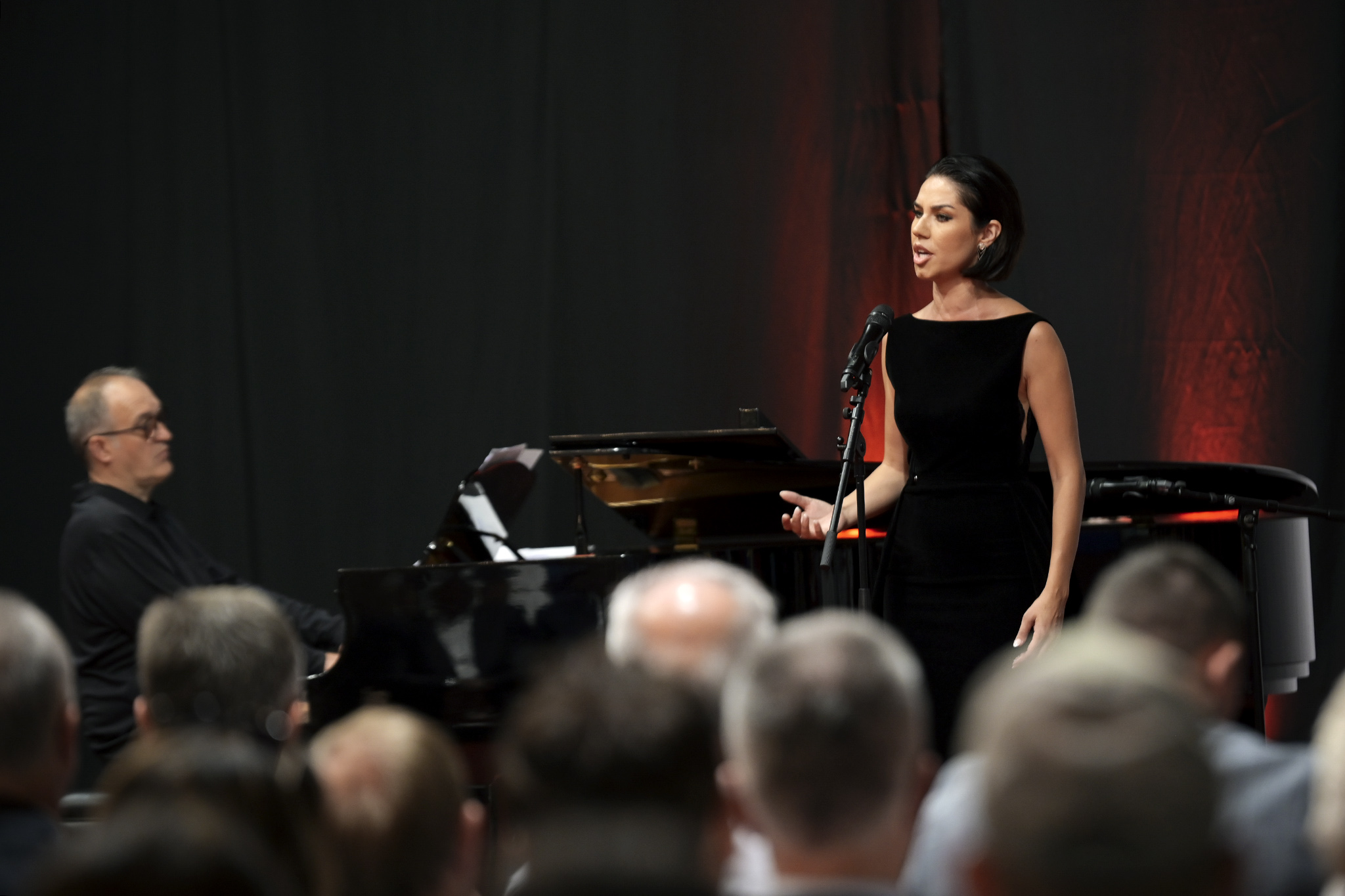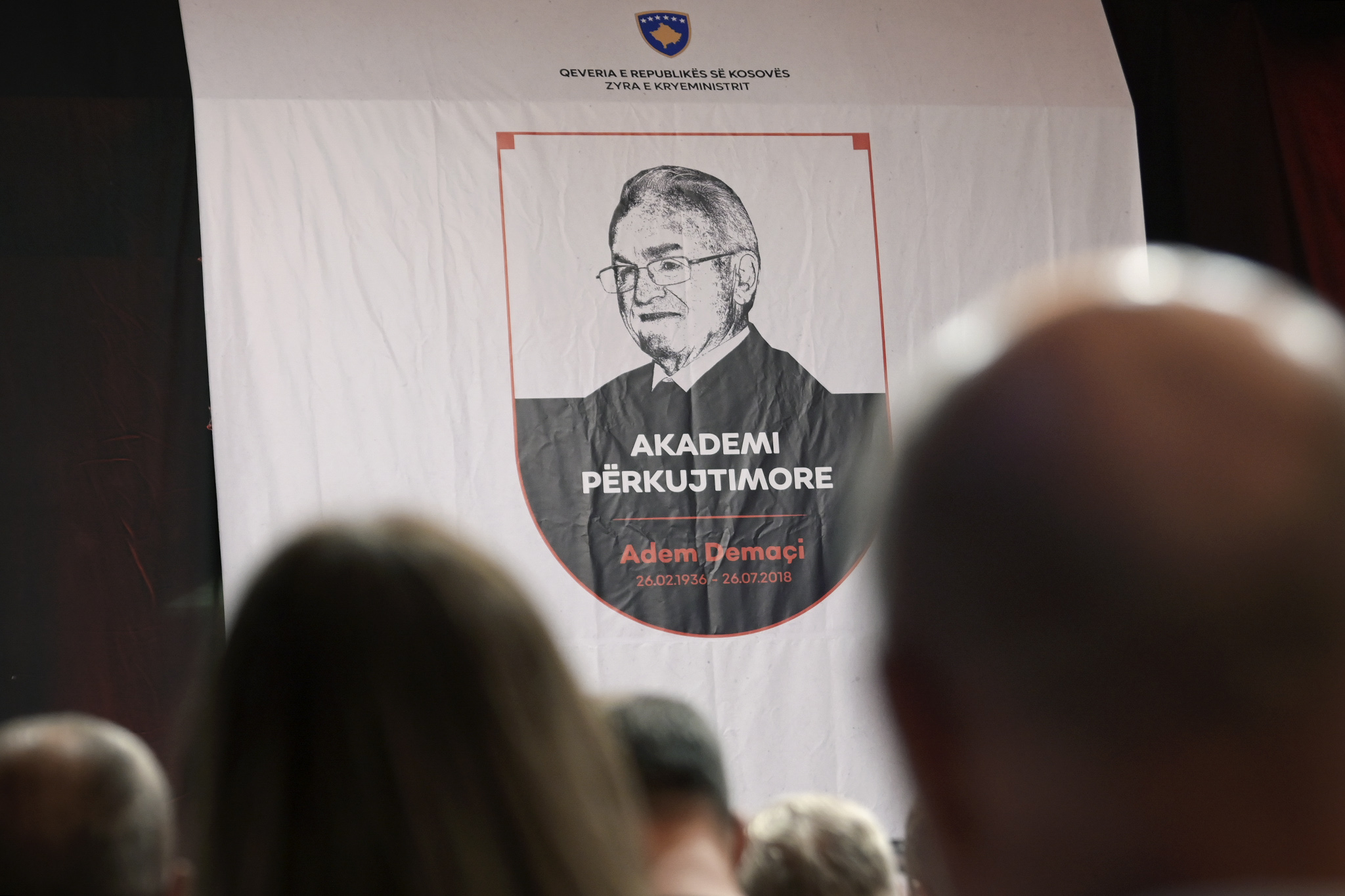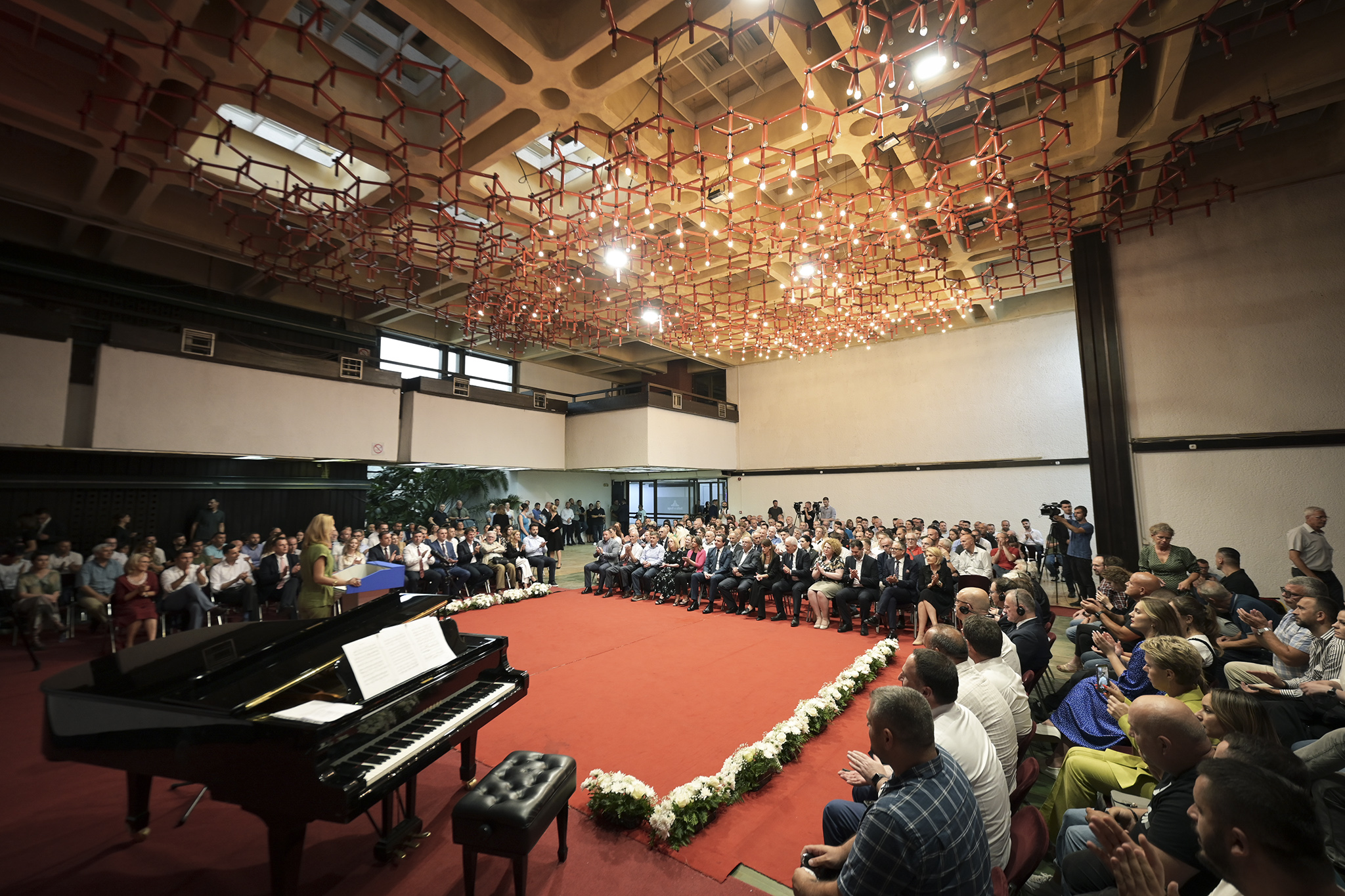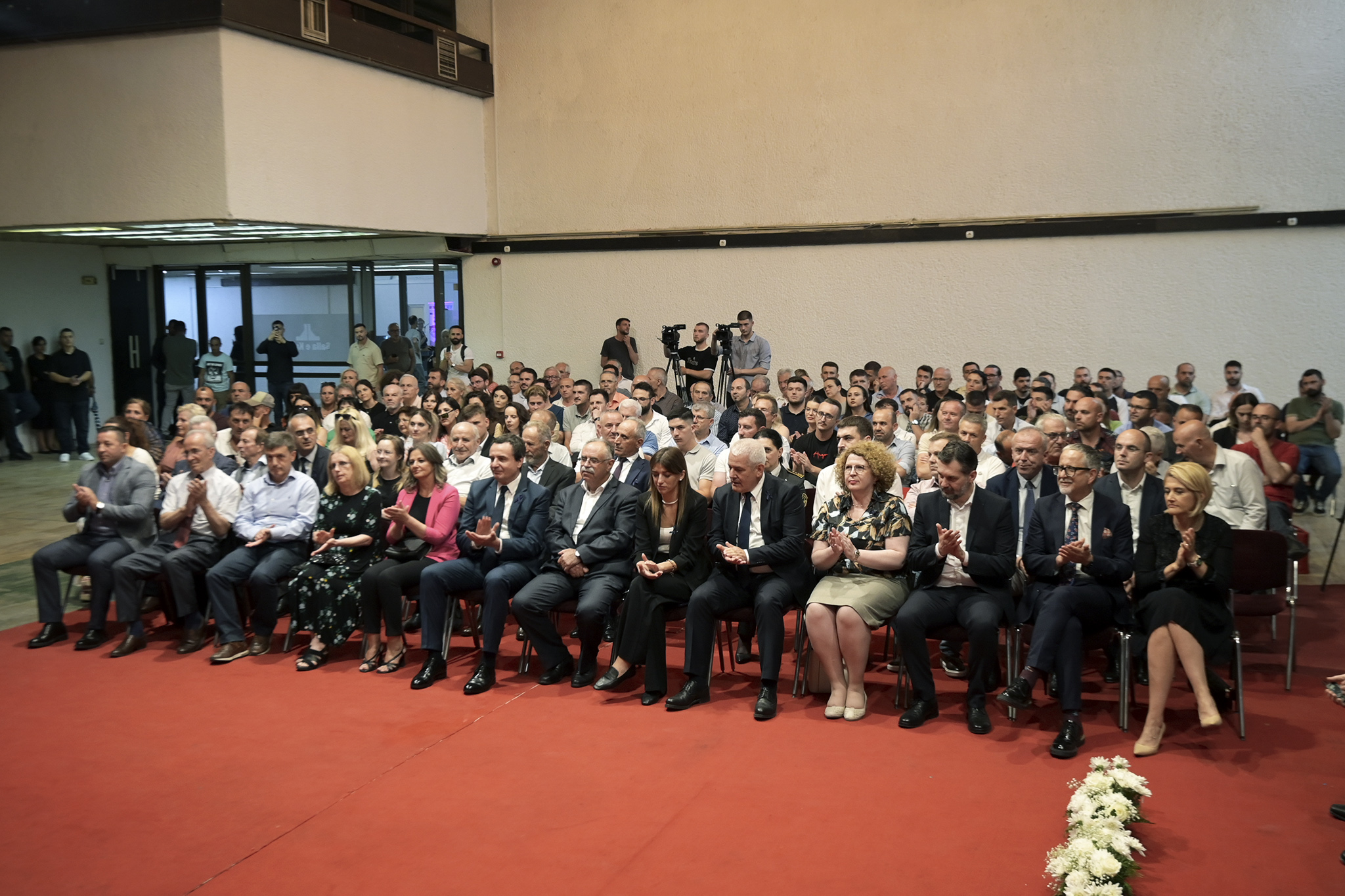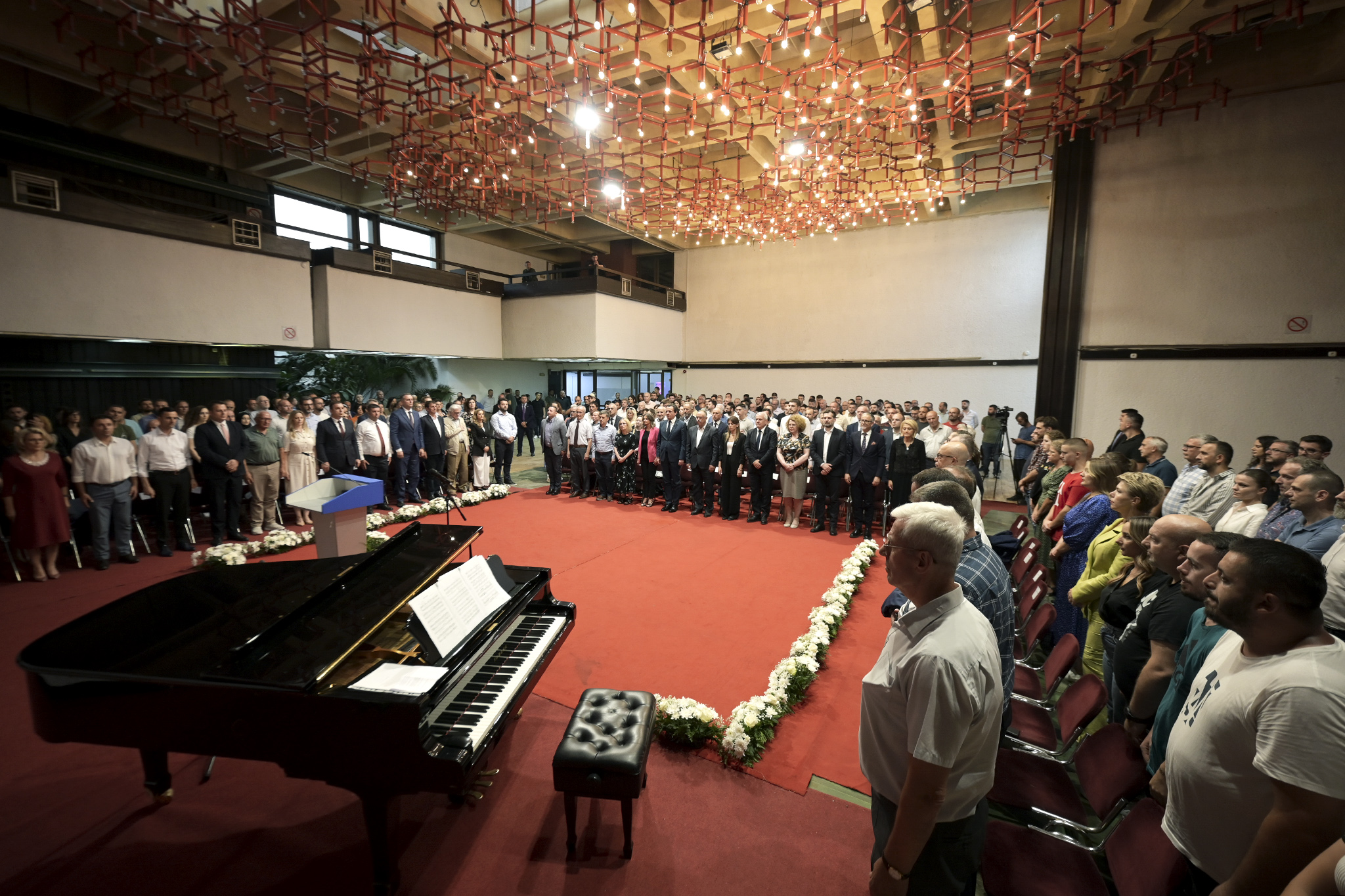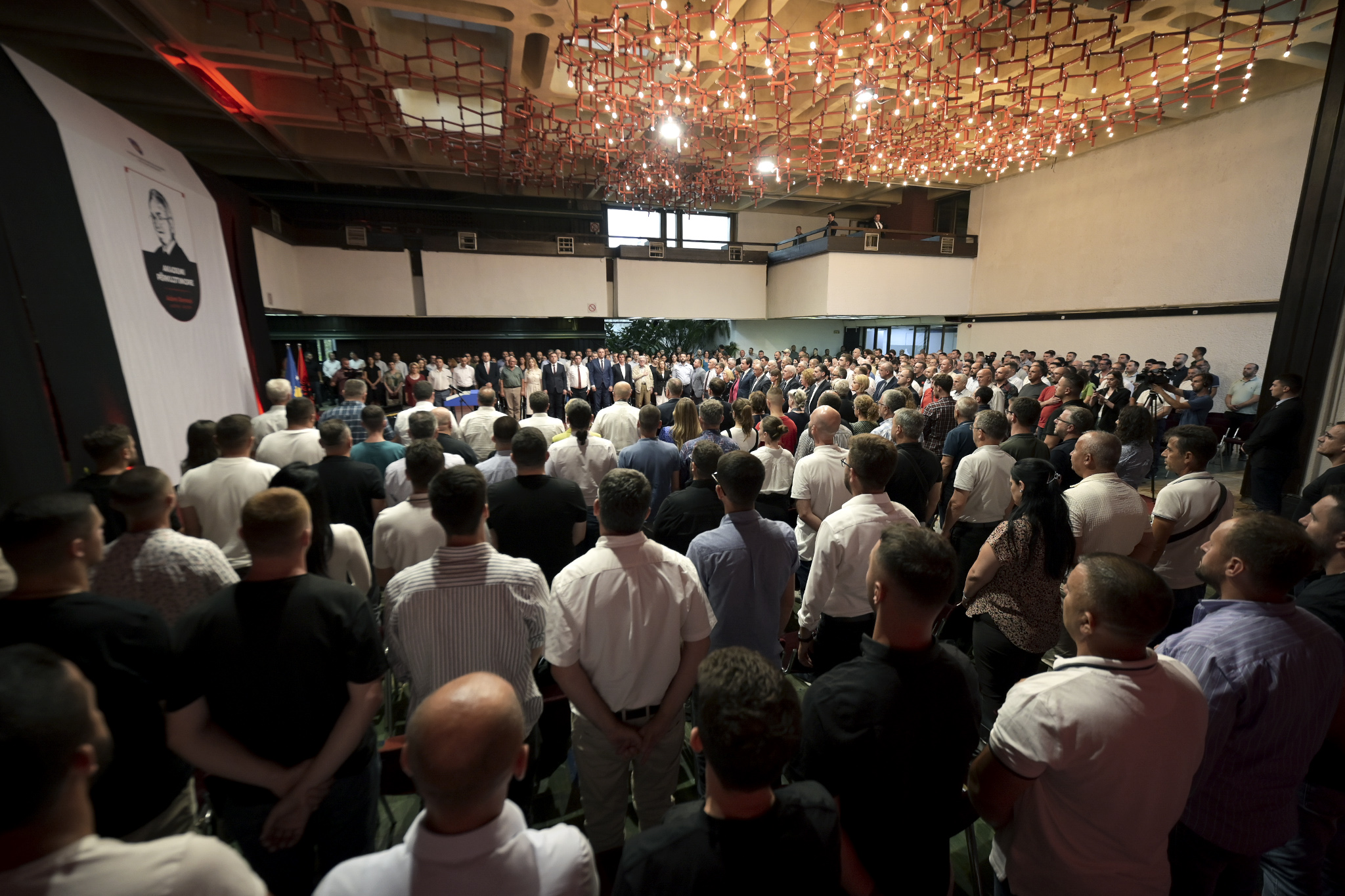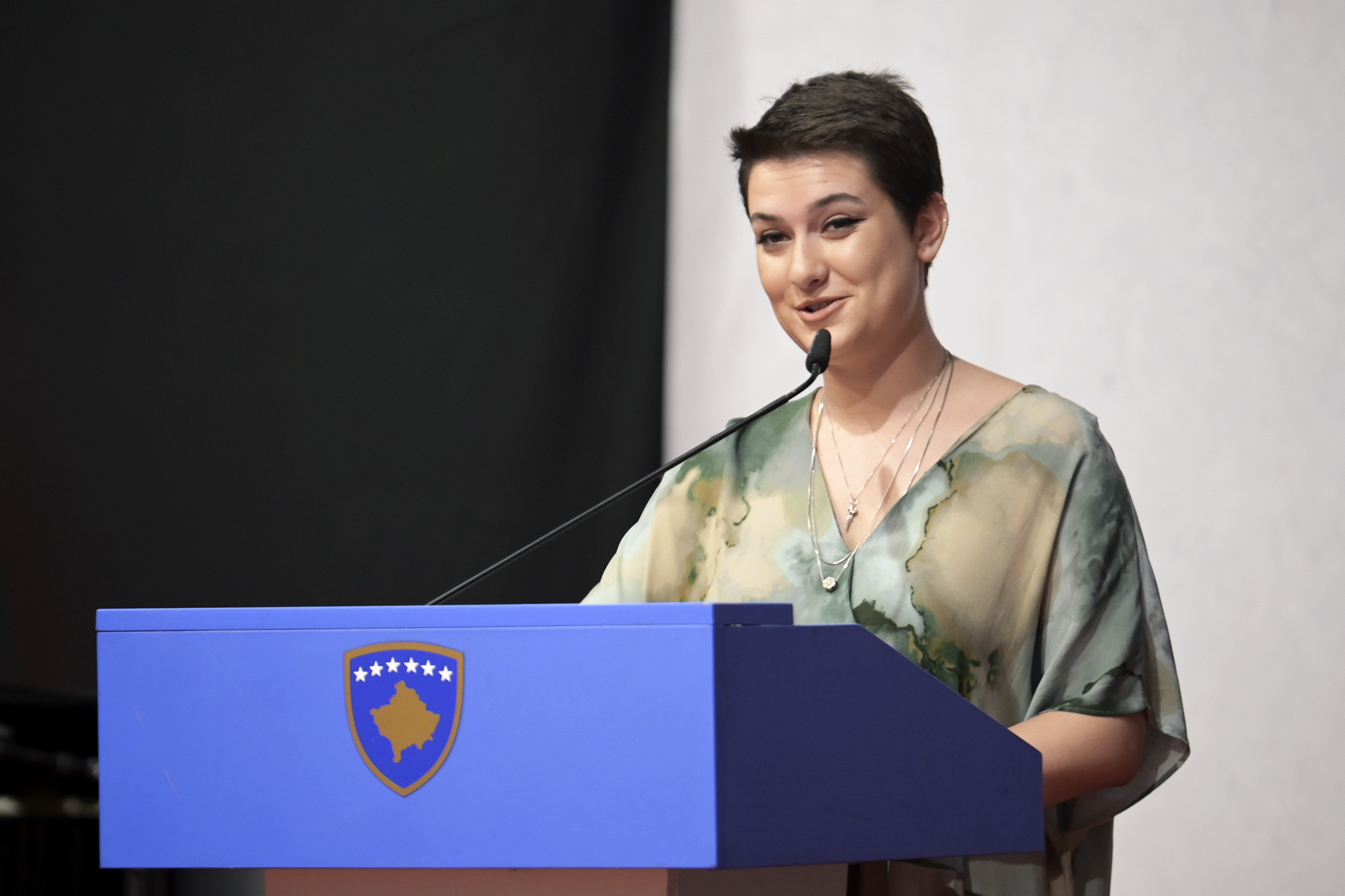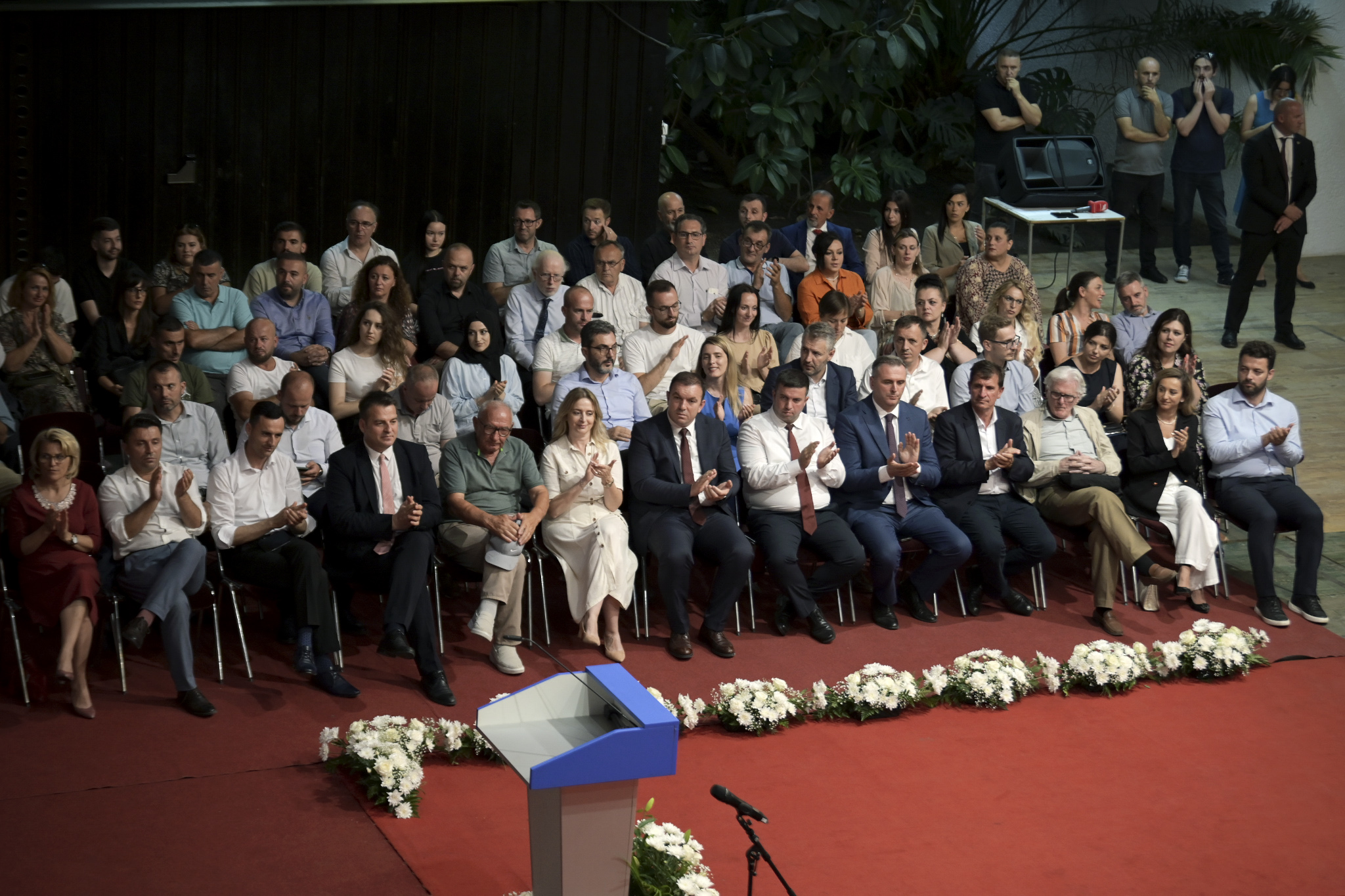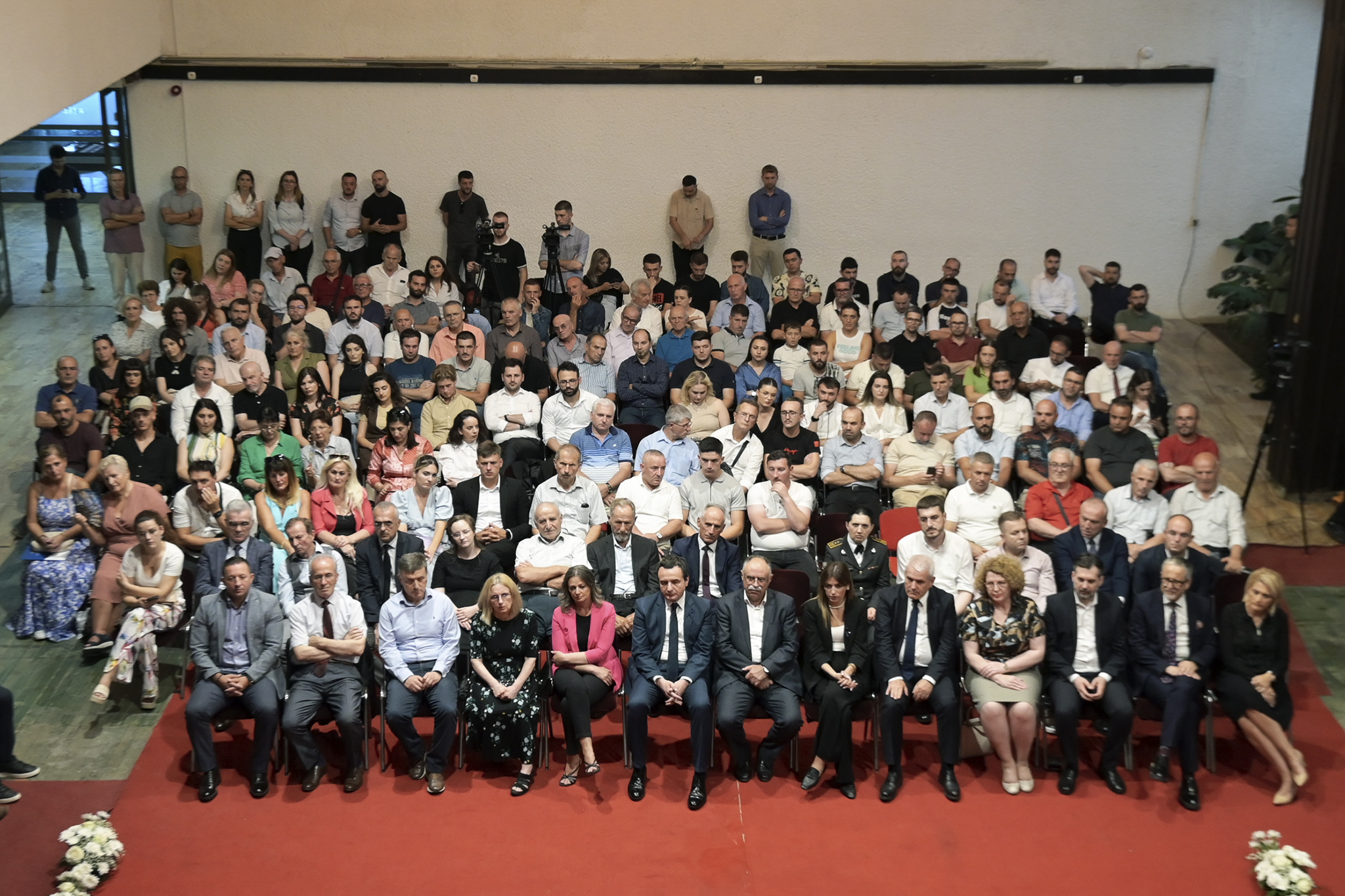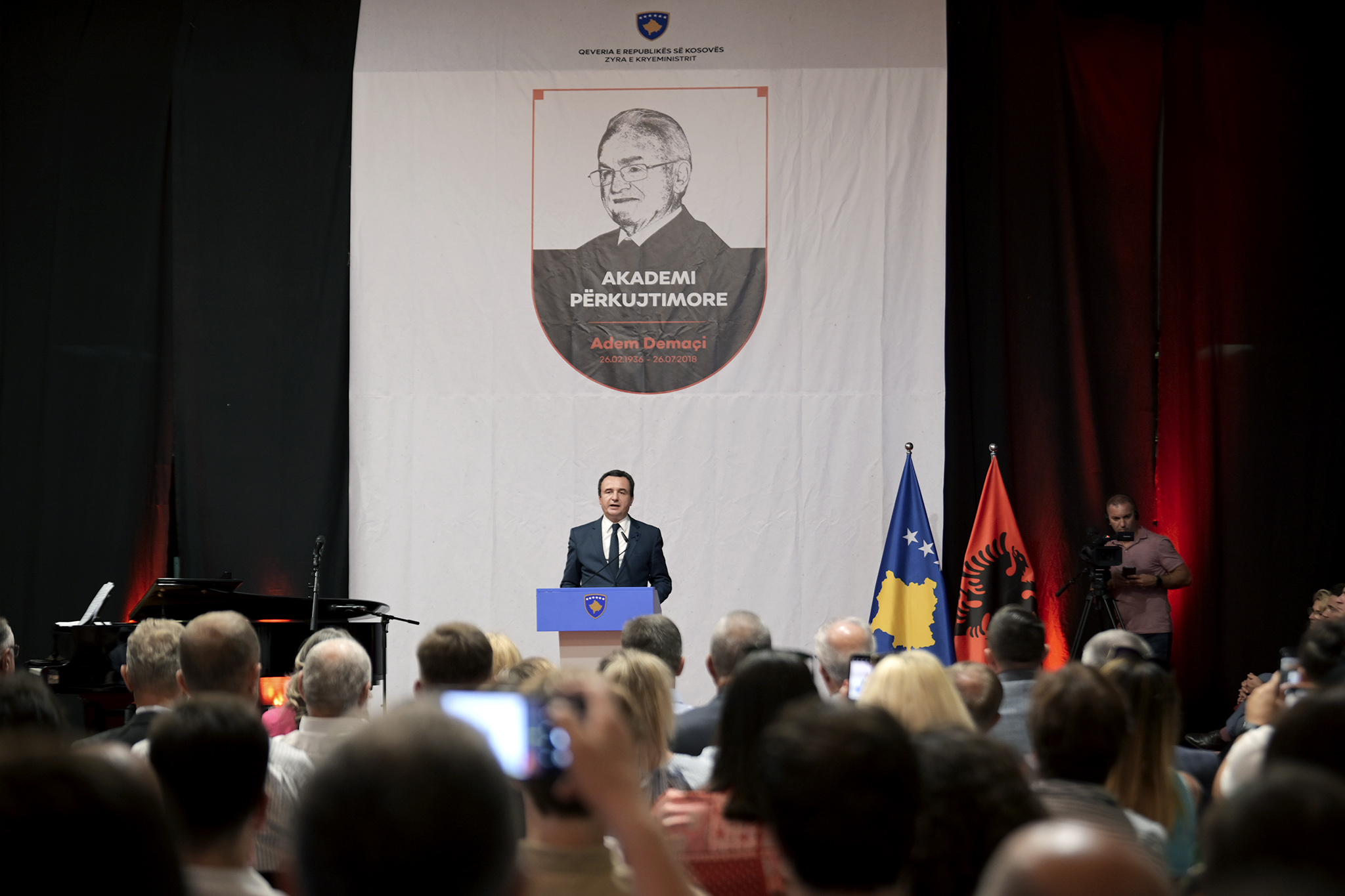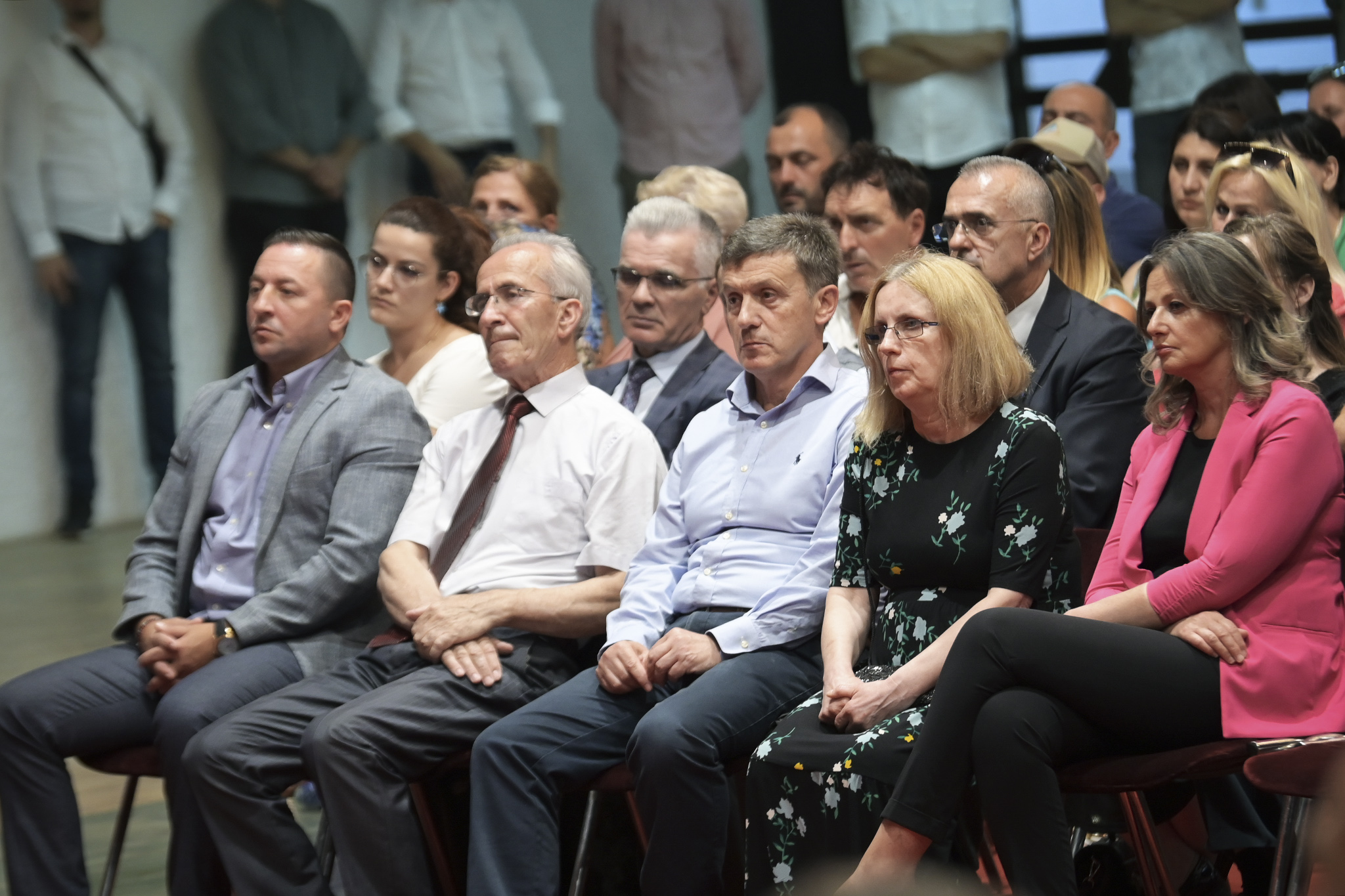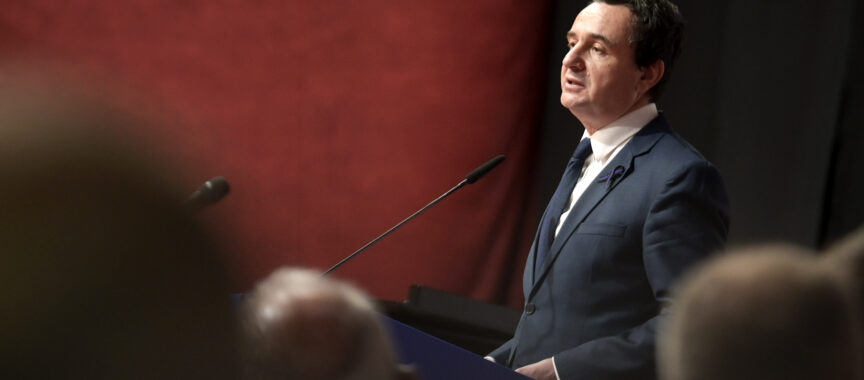Prishtina, 26 July, 2023
Under the patronage of the Prime Minister of the Republic of Kosovo, Albin Kurti, the Memorial Academy was held today in honor of the activity and intellectual Adem Demaçi, on the occasion of the fifth anniversary of his death.
In front of the audience, Prime Minister Kurti began his speech by saying that every time he has the opportunity to speak or write about Adem Demaçi, he faces the difficulty of orienting himself in such a large world that he has built with his works and that has left behind his life legacy.
“From where to begin the unfolding of the life of this man so special as to be authentic in the political history of Albanians and Europe in the 20th century. For those who have not been lucky enough to know him closely, I believe that the right gate to enter the world of Adem Demaçi is by reading his autobiographical novel “The quantum love of so-and-so”, where he tells about your life” said the prime minister.
Recalling the journey of Adem Demaç and his resistance, the prime minister said that Adem was seen as a problem for the oppressive power in Belgrade, since he had opposed the promotion of the migration of Albanians to Turkey and the persecution actions for the collection of weapons.
Journalist and writer by profession, courageous and patriotic in direction, activist and politician in action, dissident and invincible in methods, learned in mind and humane in heart. This, according to the prime minister, was Adem Demaçi in front of writing, in front of prisons, in front of freedom and in front of history.
Prime Minister Kurti concluded his speech by praising the unique life and authentic work of Adem Demaç for life and time!
Besides the prime minister, Mr. Shefki Sadiku, Chairman of the Association of former political prisoners and Abetare Demaçi, the daughter of the activist and intellectual Mr. Adem Demaçi.
Meanwhile, this Academy was accompanied by a musical performance by Avni Mula with “A Agimet shqiptare”, ” Mes dashurive” – Çesk Zadeja, ” Kroi i fshatit tonë” – Kristo Kono, ” O vendi im” – Rashid Krasniqi, ” Unë, biri yt Kosovë” Feim Ibrahimi, interpreted by Mrs. Besa Llugiqi, soprano and Mr. Valton Beqiri, piano.
Prime Minister Kurti’s complete speech:
Dear Demaçi family,
Dear Albanian, dear Abetare,
Dear Mr. Shefki Sadiku, chairman of the association of former political prisoners,
Your Excellencies accredited ambassadors to the Republic of Kosovo,
Dear members of the Assembly of the Republic,
Ministers and deputy ministers of the government,
Dear representatives of state institutions,
Dear attendees,
Ladies and gentleman,
Sisters and brothers,
Every time I have the opportunity to speak or write about Adem Demaçi, about Adem, I face the difficulty of orienting myself in such a large world that he has built with his works and that he has left behind with his life’s legacy. From where to begin the unfolding of the life of this man so special as to be authentic in the political history of Albanians and Europe in the 20th century. For those who have not had the luck to know him closely, I believe that the right gate to enter the world of Adem Demaçi is by reading his autobiographical novel “Quantum love of so-and-so”, where he recounts his life.
Meanwhile, today, on the fifth anniversary of his death, which happened on July 26, 2018, I want to start with this five anniversary from this very date. Like today, exactly 60 years ago, on July 26, 1963, the city of Skopje was hit by a very powerful earthquake that caused massive destruction. A month later, on August 22, in ruined Skopje, riding on a car, two totalitarian leaders were passing by on a joint visit: the dictator of Yugoslavia, Josip Broz – Tito, and the one of the Soviet Union, Nikita Khrushchev. Among the many preparations for their visit, fearing that it would not be ruined, the Yugoslav authorities had especially taken care of a man, who had been isolated and put in prison a few days before. And his name was Adem Demaçi!
So two powerful dictators and one of the most powerful of the time, were afraid of a young journalist and writer, at that time only 27 years old. And they were right! They were right because they had every reason to fear Adem Demaçi, although he was not yet what he would become later, Adem Demaçi. He was seen as a problem for the oppressive power in Belgrade, since he had opposed the promotion of the migration of Albanians to Turkey and the persecution actions for the collection of weapons.
Adem Demaçi was the author of the book “Blood Snakes”, the first Albanian novel written in Kosovo, which, like many of his stories, he had published in 1958 in the literary magazine “Jeta e Re”, which was then directed by Esad Mekuli. The allusions against the Yugoslav government, written in a popular language in this novel, as can be seen from the title of a time when Albanian was not yet standardized, revealed Demaçi’s political convictions, for which together with the recognition he received, he also entered the target of the then Yugoslav government. After categorically refusing to become a member of the communist party, Adem Demaçi was arrested on November 19, 1958. Note carefully, the first time Adem Demaçi was arrested on the 14th anniversary of the liberation of Pristina from Nazi Germany, because this was how liberation was celebrated at the time of Rankovic.
In a political judicial process held in Pristina during February and March of 1959, he was sentenced to 5 years in prison.
During this process, he stated that I am quoting: “If Serbia and Yugoslavia do not give up the occupation and if they prevent the union of Kosovo with Albania, then there will be no peace in the Balkans” ends the quote. The truth of this warning would be proven forty years later and in some forms continues to be proven to this day. He spent 3 years in prison in Mitrovica e Srem and in Belgrade, before being released on November 18, 1961. But this would only be his first and the shortest imprisonment in his life.
In September 1963, together with other activists, Adem Demaçi founded and was put in charge of the secret organization Revolutionary Movement for the Union of Albanians (LRBSh), which was soon discovered. Adem Demaçi was arrested again and after a trial held from August 27-31, 1964, he was sentenced to 15 years in prison. He would be released on June 8, 1974, after serving 10 years in prison, first in Nis and then in Pozharec. Although with a much shorter duration, 25 years later, I would also experience the prisons of Nis and Pozharec, a prisoner from Serbia, among other things as an associate of the Adem family. In those prisons, I saw the places that I had heard Baca Adem tell about during the years spent in prison, a time when, as he himself said: “the Serbian occupiers tempered and forged me for their trouble and blackness.”
While Serbia kept Adem Demaçi in prison, it had not succeeded in imprisoning his figure in public, since Adem Demaçi had become a synonym of resistance in opposition to the Yugoslav oppressive power over the Albanians. “Long live Adem Demaçi”, was one of the calls in the mass demonstrations of 1968, which brought both the flag and the university, while Adem Demaçi was in prison. Even in the demonstrations of 1981, long live Adem Demaci would be cheered again when he was in prison again. Likewise, in the demonstrations of 1989, Albanians cheered long live Adem Demaci, who was still being held in prison. The collective walk towards freedom as a movement of the people from those who were in the big prison called Kosovo was done with the call long live the one who was in the prison inside the prison long live Adem Demaci.
Only one year after his release from the second prison, Adem Demaçi was arrested on October 6, 1975. The trial, which was held from February 1 to 7, 1976, sentenced him to 15 years in prison, which he spent in prison of Stara-Gradiska in Croatia.
By order of the presidency of Yugoslavia, Adem Demaçi was released on April 21, 1990, five and a half months before the full end of his prison sentence. Upon his release from prison, he declared: “Since April 21 of this year, I am in the largest prison in the world known to the history of mankind – in the prison of Kosovo, where more than two million Albanians from the hegemonic-chauvinist regime – terrorists have been stripped of all the most basic human and national freedoms and rights.”
As a fighter of thought and free speech and as a defender of human rights and freedoms, on December 4, 1991, at the initiative of MP Doris Pack, the European Parliament awarded Adem Demaç the “Sakharov” Prize. He had spent a full 28 years in prison, comparable to the first Sakharov Prize winner, Nelson Mandela, the South African activist who had been imprisoned for 27 years. Just like Mandela in South Africa, Adem Demaçi would oppose apartheid and the segregation of Serbia in Kosovo, even as chairman of the Council for the Protection of Human Rights and Freedoms between the years 1991-1995.
In his speech when he received the Sakharov award, Adem Demaci said “the logic of blocks blocks logic” he was committed to cooperation and peace, Adem Demaci was the castle that loved the bridge and the warrior who loved peace.
And in 1994, Adem Demaçi simultaneously ran for the “Nobel” Prizes for Literature and “Nobel” for Peace, thus reminding you of profiles of world writers such as Amos Oz. In 1996, he was elected Chairman of the Parliamentary Party of Kosovo, but his figure always remained above-party. In 1997, Adem Demaçi supported the protests organized by us students through the Independent Union of Students of the University of Pristina. And a few months later, on August 13, 1998, the General Staff of the Kosovo Liberation Army appointed Adem Demaçi as the political representative of the KLA. Until March 2, 1999, when he resigned, Adem Demaçi represented the KLA politically, in the face of Serbia’s wild propaganda, defending and affirming the KLA worldwide, in media conferences, in meetings with representatives and international delegations. During this time, for more than six months, I had the good fortune to be his secretary in the KLA office in the Tophane neighborhood of Pristina. And there I was a witness and a student of that man who, during his life, endlessly mocked death and laughed at the danger and committed himself to the freedom of Kosovo with his whole being.
Even after the war, Adem Demaçi continued to be an important reference address and a mind from which we all expected thoughts. Every time our society and state was at a crossroads, we turned our heads to Adem Demaçi to ask him what he thought about this or that path. But since July 26, 2018, we no longer have this leader. And yet even further, whenever we want to take steps forward in our journeys, we Albanians are always worth asking ourselves and each other: what would Adem Demaçi think about this? But to get answers, we have to go back and return to his written work and his lived work, which has not yet been studied and cultivated.
Adem Demaçi was the compass of freedom for Albanians in Yugoslavia! Because he had witnessed with body and mind the three Yugoslavia’s: he was born in 1936 in the first or monarchist Yugoslavia, he had spent 28 years in prison in the second or Tito’s Yugoslavia and he had actively and vigorously fought against the third or the Milosevic. Journalist and writer by profession, courageous and patriotic in direction, activist and politician in action, dissident and invincible in methods, learned in mind and humane in heart. This was Adem Demaçi in front of writing, in front of prisons, in front of freedom and in front of history.
Glory to the unique life and authentic work of Adem Demaçi forever!
Last modified: July 27, 2023
